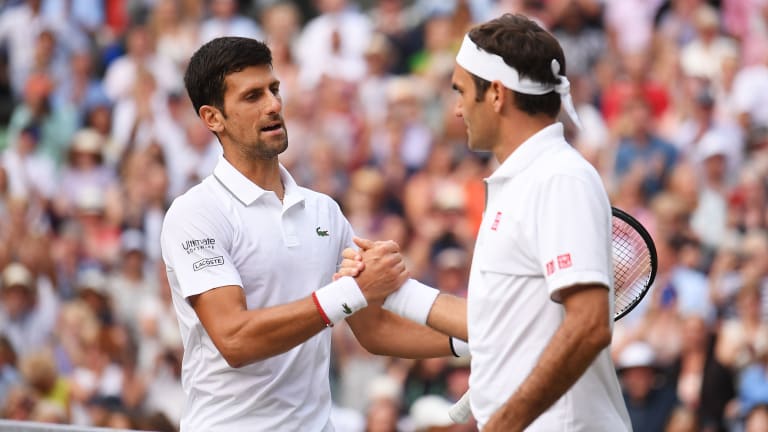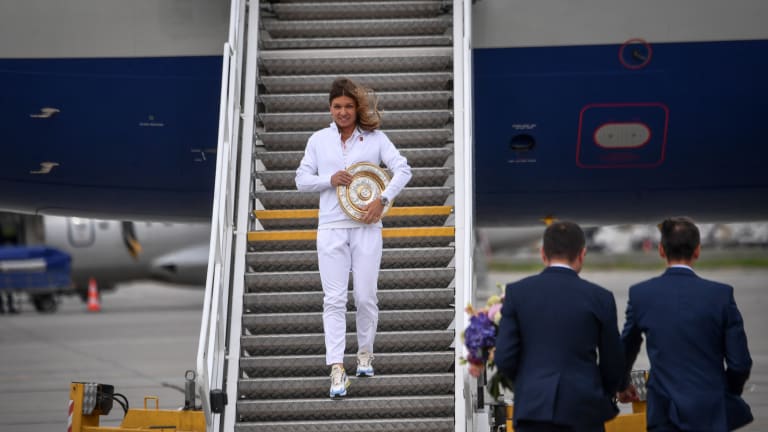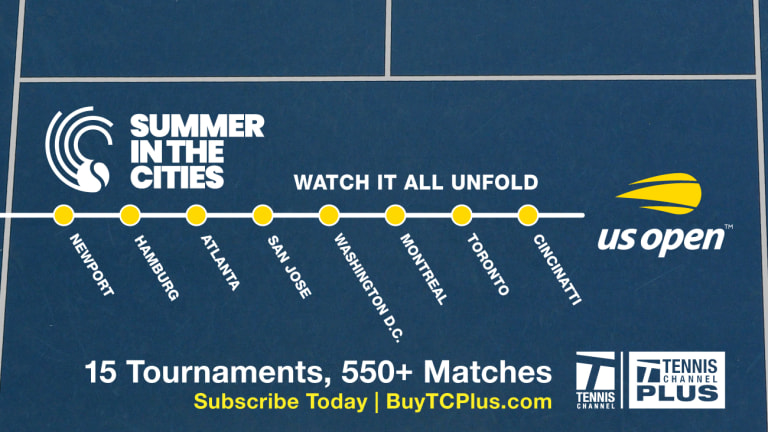Wimbledon
Wimbledon takeaway: the major stage still favors experience over youth
By Jul 15, 2019Wimbledon
The battle for No. 1 & more: Four WTA takeaways from the Wimbledon fortnight
By Jul 17, 2023Wimbledon
Can anyone stop Alcaraz or Djokovic? Four ATP takeaways from the Wimbledon fortnight
By Jul 17, 2023Wimbledon
Carlos Alcaraz's Wimbledon trophy keeps him at No. 1, Marketa Vondrousova's lifts her to No. 10
By Jul 17, 2023Wimbledon
Analysis: Carlos Alcaraz's Wimbledon title shows he is exactly who everyone thought he was
By Jul 17, 2023Wimbledon
Wimbledon champ Carlos Alcaraz shows us there’s no need to rein in expectations for him
By Jul 16, 2023Wimbledon
Hsieh Su-Wei and Barbora Strycova win second women's doubles title together at Wimbledon
By Jul 16, 2023Wimbledon
Novak Djokovic rues his missed chances after losing a highly entertaining Wimbledon final in five sets
By Jul 16, 2023Wimbledon
Fairytale Finish: Barbora Strycova wins last Wimbledon with Hsieh Su-Wei
By Jul 16, 2023Wimbledon
Carlos Alcaraz becomes sixth player to defeat Novak Djokovic in a Grand Slam final
By Jul 16, 2023Wimbledon
Wimbledon takeaway: the major stage still favors experience over youth
When checking ages of the players going deep into the second week of Wimbledon, youth was almost nowhere to be found.
Published Jul 15, 2019
Advertising
Advertising
Advertising

Wimbledon takeaway: the major stage still favors experience over youth
© AFP/Getty Images
Advertising

Wimbledon takeaway: the major stage still favors experience over youth
© AFP/Getty Images
Advertising

Wimbledon takeaway: the major stage still favors experience over youth